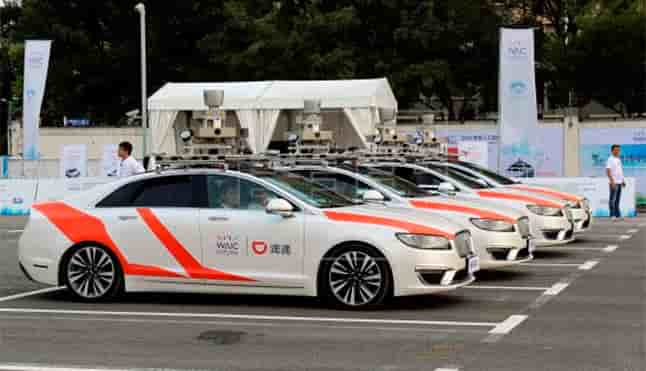
Would you dare to get into a taxi without a driver? In China it is already possible thanks to the 'robotics', the driverless cars that are beginning to be used in pilot programs that seek to obtain experiences to continue developing and improving autonomous vehicles.
The last one to get in the car has been Didi, the multinational shared vehicles, which recently obtained the permits from the Shanghai Government to test autonomous vehicles in an area destined for it and is in the process of obtaining the permits for the launch of the 'robotics' '.
"We still need to get some permits, but we estimate that by the end of the year everything will be ready," Bo Zhang, head of the DiDi Technology Office (CTO), told the press, the day on which its launch at the Conference was announced. Shanghai World of Artificial Intelligence.
That same day, Efe had the opportunity to test Didi's autonomous driving system in a closed circuit and aboard one of the 30 'robotics' that presumably will soon travel the streets in the Jiading district.
With the mandatory safety driver sitting on the pilot's site without touching the steering wheel or pedals, the user observes how the steering wheel moves alone, and the car accelerates in straight lines, slows down in curves or slows before obstacles.
Free Service
As Zhang explains, the future service of '' robotaxi 'will be free because "the purpose of the program is not commercialization, but to develop our technology, to have real feedback and opinions from our passengers to improve our technology."
The objective is to obtain the gold of this decade, "big data", data that can be used to analyze how cars face real situations on the road and how passengers interact with them. Passengers who will be the "guinea pigs" for the development of the self-employed.
A risk that, in Zhang's opinion, is worth it, since in the future, when autonomous driving expands, the number of accidents "will be reduced exponentially."
Although Didi is still waiting to be able to carry passengers in his 'robotics', there are other companies that have already achieved it. This is the case of the technological giant Baidu, which already has a dozen autonomous taxis circulating in the city of Changsha for a few weeks, or the US-based company Pony.ai.
According to Efe, a spokesperson for the latter, the company presented its 'PonyPilot' project in December 2018 and became the first company to launch robbery taxis in China, specifically in the city of Canton, although it later expanded to Beijing and the American city of Fremont.
"The total coverage of open urban environments in different sites is close to 300 square kilometers, and only in Canton represents more than 100 square kilometers. We carry out the largest 'robotaxi' operation in China by coverage and number of trips ", he explains to Efe, without specifying more data.
Pilot zone
Didi's plan is to operate in Jiading, an area of Shanghai where in March 2018 the city government created a pilot zone for the test of vehicles without a driver, next to the City of the Automobile of the city, where the main Industries of the automotive sector.
And it is that local governments have not wanted to be left behind in the development of autonomous vehicles and there have been numerous cities that have launched their special areas for the test of vehicles without drivers, that is, areas open to traffic where manufacturers can test their vehicles and get real results.
In recent years, almost all major Chinese automakers and technology giants have strongly opted for autonomous driving, often creating synergies between governments and private companies.
In Zhang's opinion, working with local governments is one of the priorities of Didi, a company present in 100 cities around the world with 30 million daily trips, since "the best way to market autonomous vehicles is the 'robotics'".
"There are two ways to market and expand them in the future. The first, sell freelancers to consumers, and the second implement this technology in the network of shared vehicles. In my opinion, the first is not feasible in the short term because the generalization of freelancers will still be very slow, there are still many limitations. "
However, a freelancer within a taxi company will be launched as long as the right situation exists. "When a user asks for a taxi we already know the destination and the route, so we can decide if it meets the requirements to be covered by an autonomous vehicle," Zhang concludes.
El Periódico Digital
